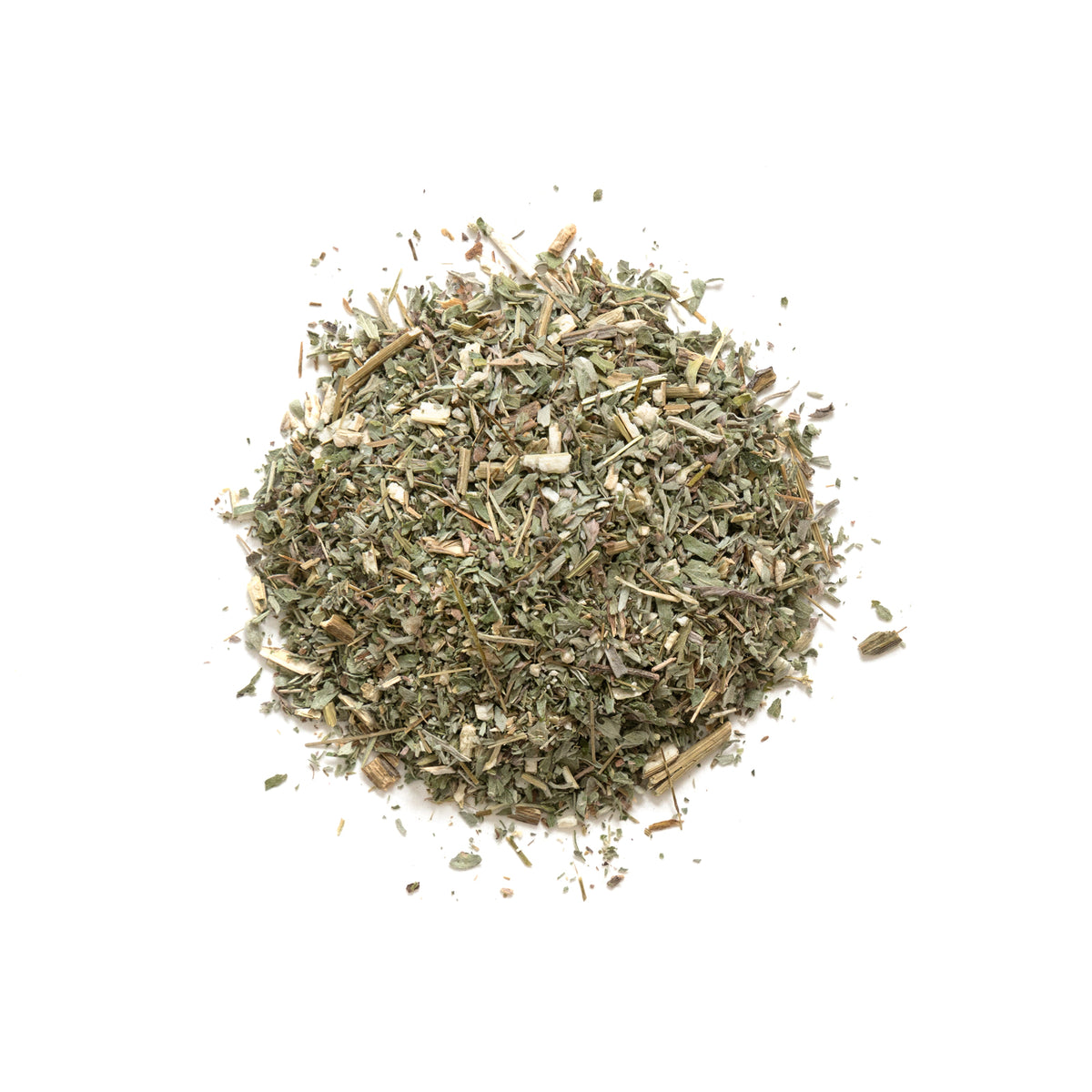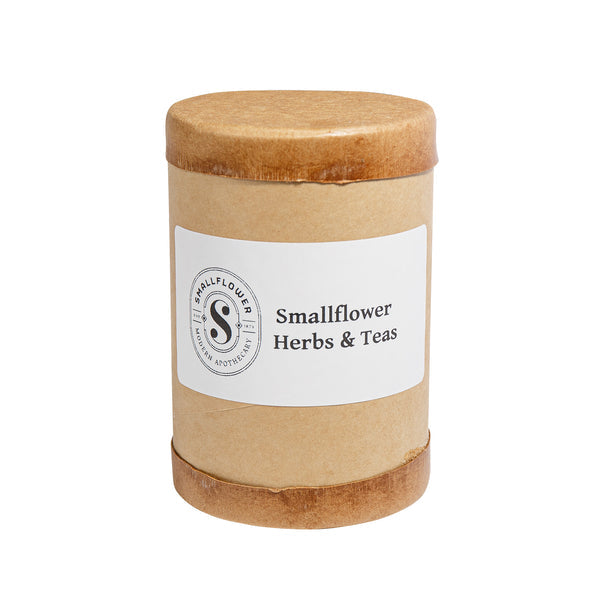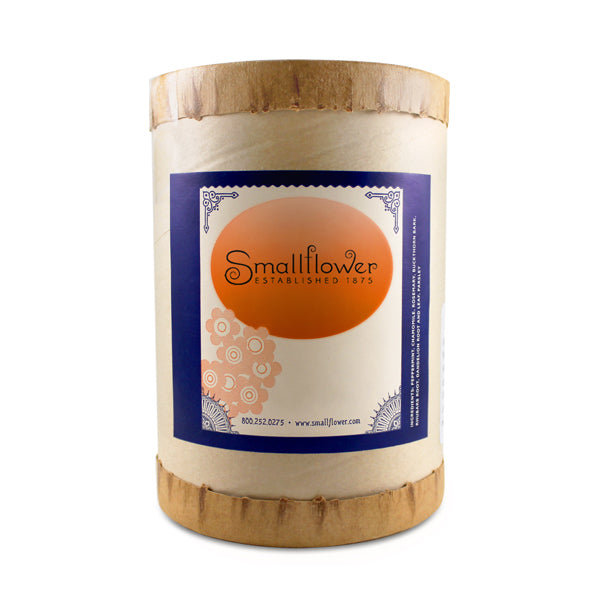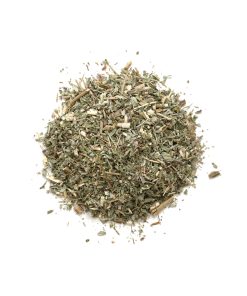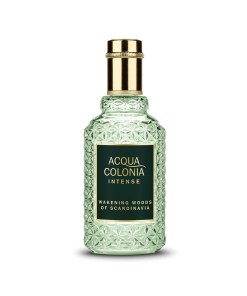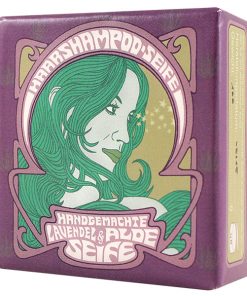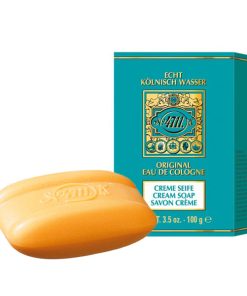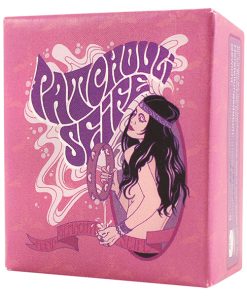Smallflower Wormwood (Artemisia absinthium) (4 oz) #11422 Smallflower
$ 7,50 $ 4,50
Wormwood – (Artemesia absinthium) is an herbaceous perennial of the Asteraceae family, native to Eurasia and North Africa. It can grow up to two meters high with silvery green, fuzzy leaves, and stems that become woody as the plant matures. It flowers in late summer and early fall in clusters of pale to bright yellow blooms that droop down. Its storied past likely begins in Greek mythology with its namesake Artemis, the goddess of wild creatures, who is said to have delivered Wormwood to the centaur Chiron, the father of medicine. From then on, practitioners of Greek medicine including Hippocrates, embraced Wormwood as a valuable medicinal ally.
Wormwood continues to be a popular remedy in folk and herbal medicine to this day, but is perhaps most well known for its more magical and mind-altering reputation. Wormwood was commonly used as flavoring in beer before hops became the standard – but its real ascent into spirits stardom began when it became the essential ingredient of absinthe in the late 18th century. Absinthe is the bright green aperitif that became wildly popular by the late 19th century in Paris, particularly with the artists and writers of the day; it became the source and subject of many works of art from Baudelaire and Oscar Wilde to Van gogh and Toulouse-Lautrec.
There’s a common saying, “bitter as wormwood” and it’s no joke! Wormwood is considered to be the most bitter of all herbs, lending itself to be beneficial for the stomach and all-around digestive support, as well as a flavoring for countless preparations from cocktail bitters and mixers to apertifs and cordials.
For many centuries, people from all over the globe have found fresh herbs to be a gentle yet effective health-enhancing blessing. These are our own hand packed loose herbs, packaged in old world apothecary style, air tight brown paper canisters to keep light and moisture out, and freshness in. Use in teas, tinctures, and elixirs.
| Size | 4 oz |
|---|
Fast Shipping and Professional Packing
Our long-standing partnership with UPS FedEx DHL and other carriers around the world lets us offer a range of shipping services. Our warehouse employees will pack all goods to our exacting specifications. Your goods are thoroughly checked and securely secured prior to shipment. We deliver to hundreds of thousands of customers each day in different countries. This shows our commitment to become the biggest online retailer on earth. The warehouses and centers of distribution are located in Europe, as well as the USA.
Orders with more than 1 item are assigned processing times according to each item.
We will thoroughly inspect all items ordered before shipping. The majority of orders will be delivered within 48 hours. It is expected that delivery will take between three and seven days.
Returns
Due to multiple parties which include the factory as well as the warehouse, we are unable to effectively manage inventory. The stock levels may fluctuate at any given time. Be aware that it is possible that your order will run out of stock even after you have made the order.
Our policy lasts for thirty days. We cannot exchange or refund your order if it has been 30 days from the date of purchase.
The item you purchase must be in its original packaging and be unused. The item must be in the original packaging.
Related products
European Soaps
Aftershaves
Traditional Deodorant
